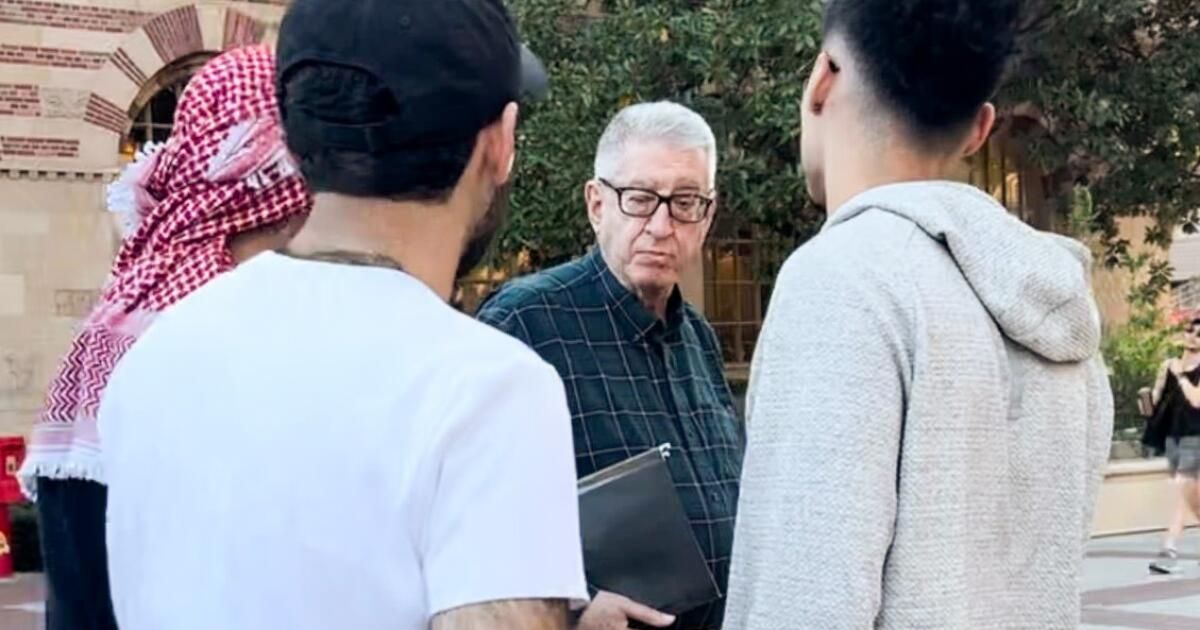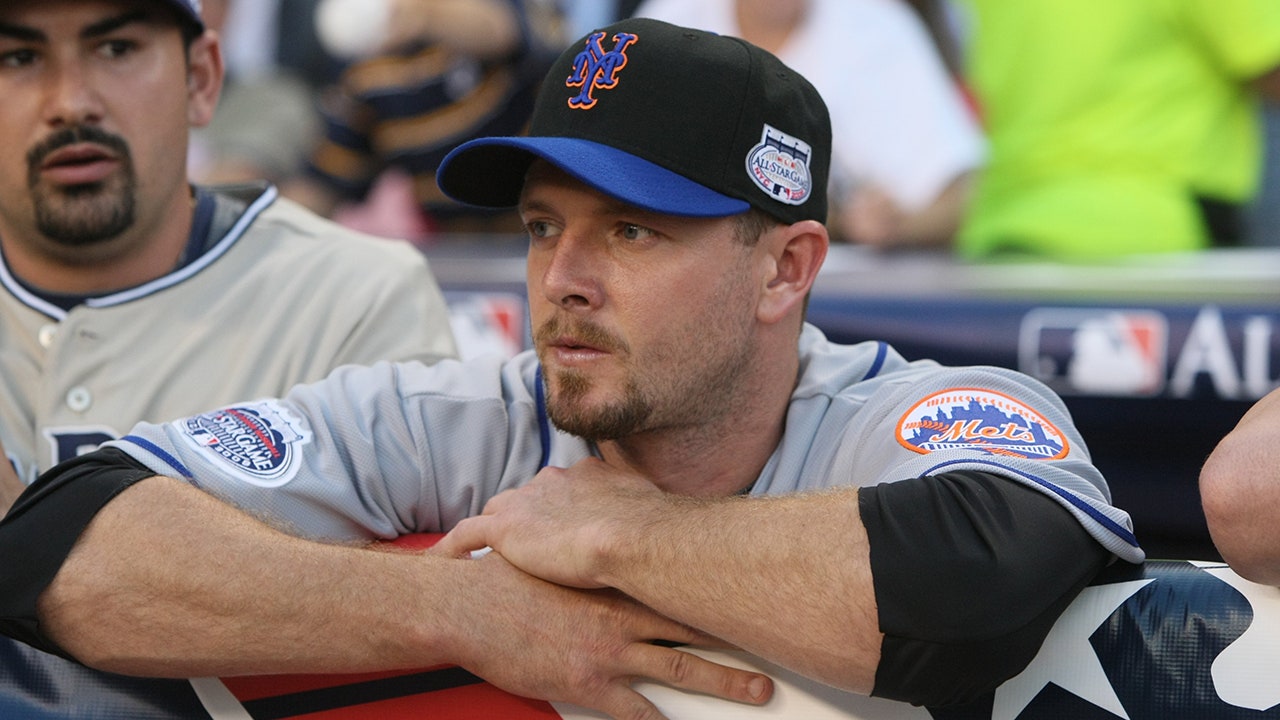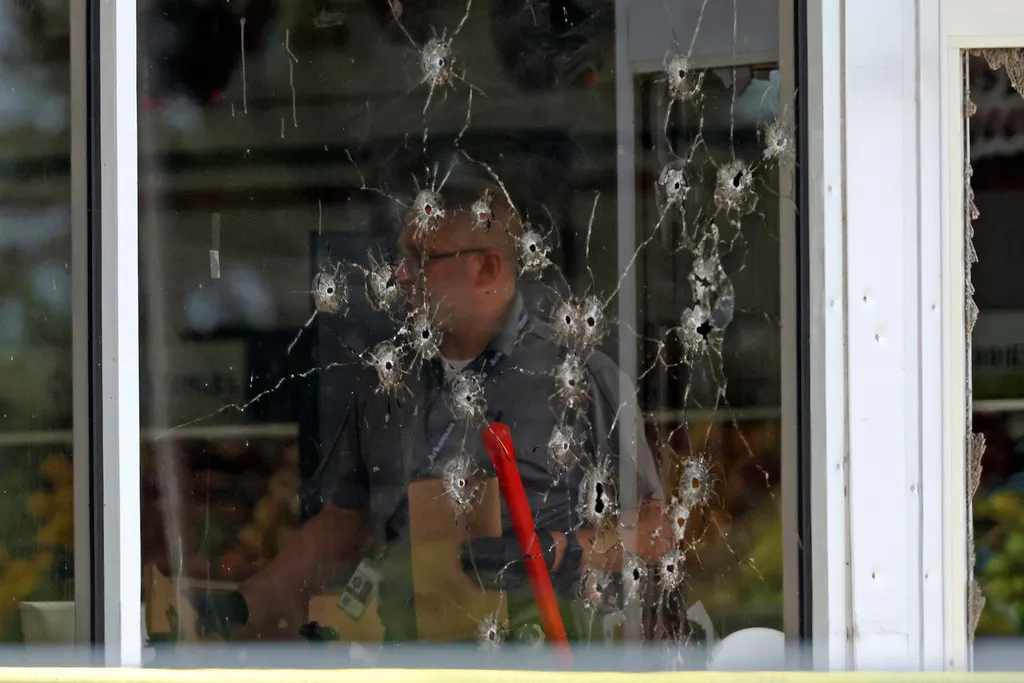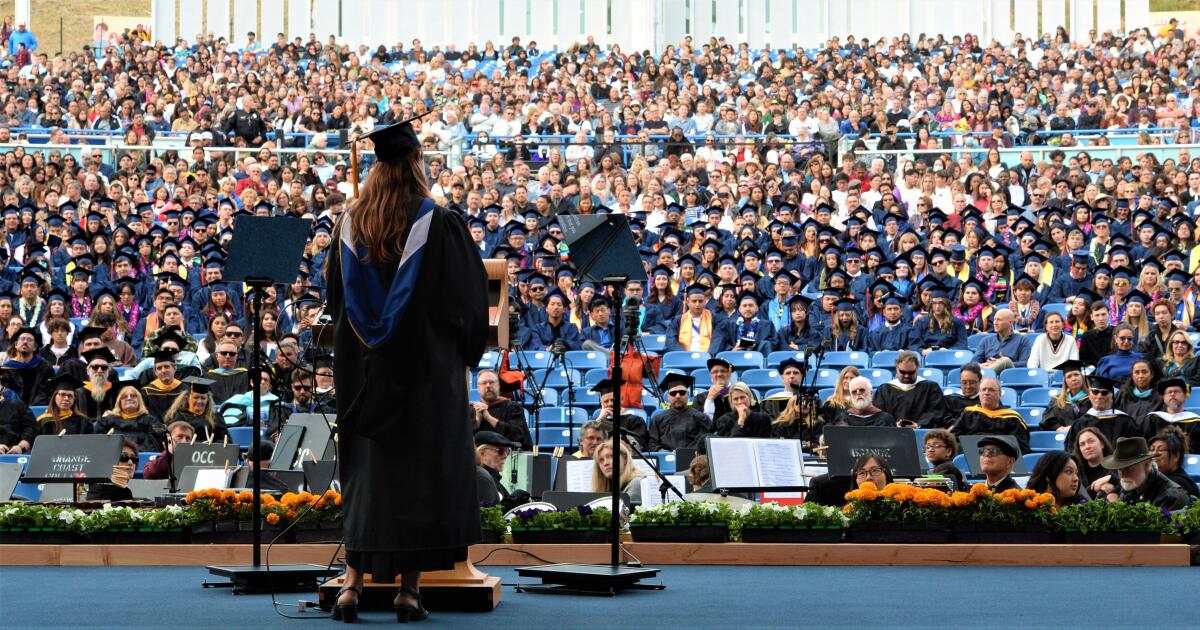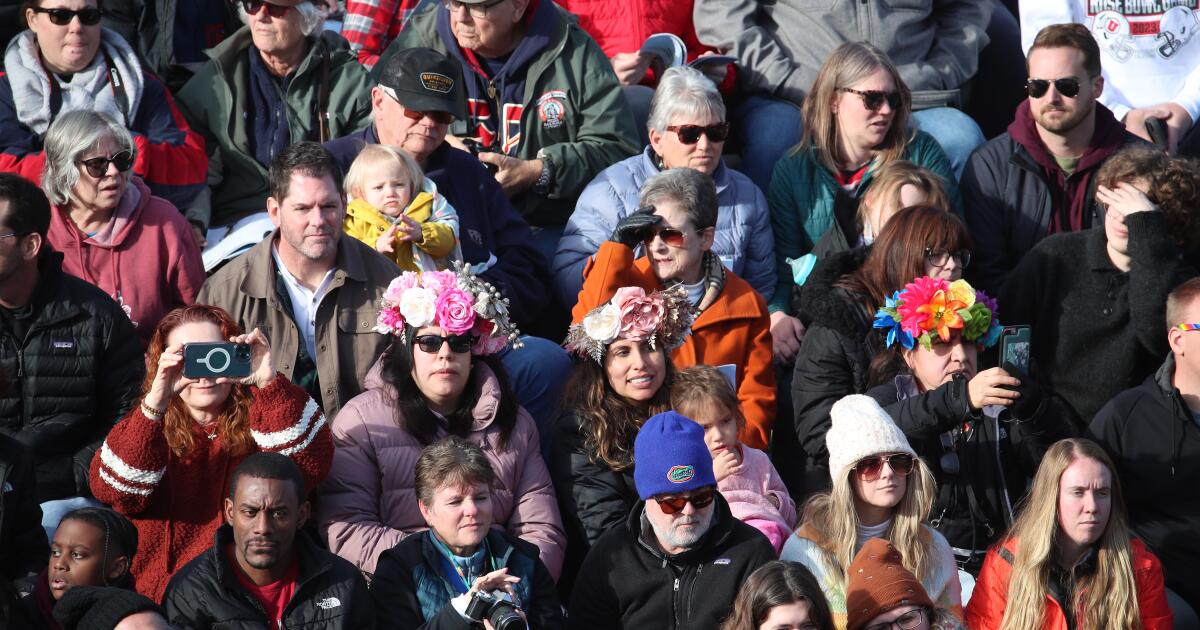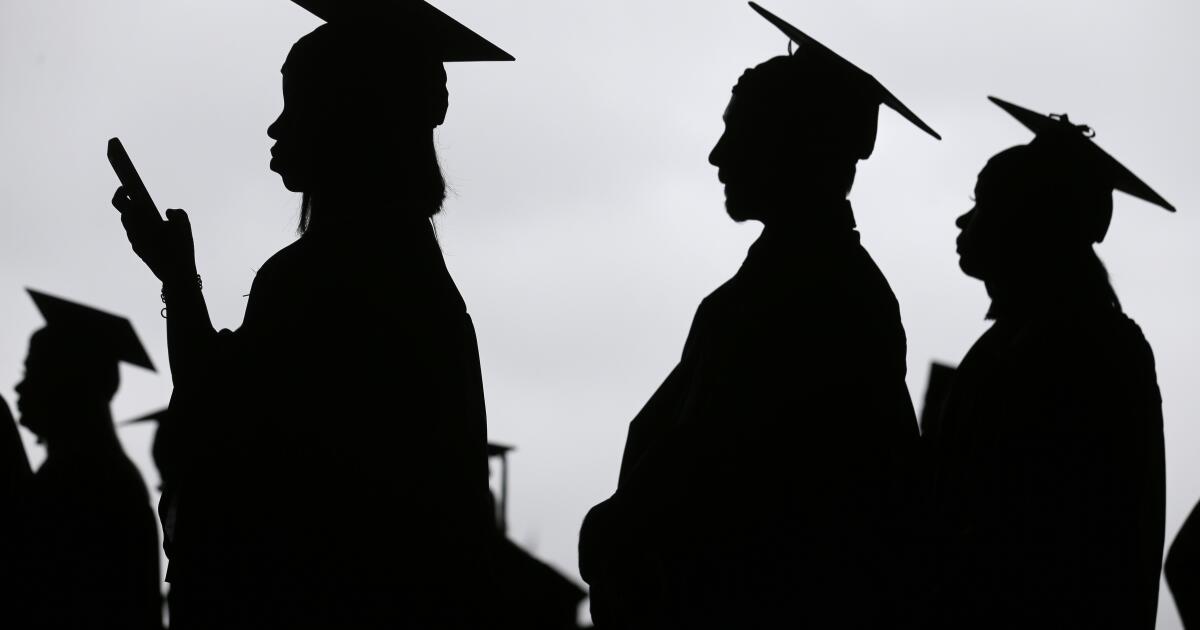In the weeks following Hamas' attack on Israel in October, a confrontation between a Jewish USC professor and a group of pro-Palestinian students went viral and sparked a storm of controversy on campus.
Economics professor John Strauss told the students (who were calling for a ceasefire and commemorating Palestinians killed in the war) “Hamas are murderers,” adding: “That's all they are. “They should all be killed, and I hope they are all killed.”
Video of Strauss' comments spread quickly online and led to a petition calling for the professor's dismissal. More than 10 students also filed complaints against Strauss, accusing him of engaging in discrimination, harassment and fostering an unsafe environment.
This week, that long investigation came to an end.
USC administrators informed Strauss on Tuesday that the case against him was closed, the students' complaints would be dismissed and he would not face any formal discipline, according to the professor and his attorney.
“I feel relieved,” Strauss said in a telephone interview. “As far as I'm concerned, I've been completely exonerated and they're doing nothing to punish me and it's over.”
Her lawyer, Samantha Harris, said she was “frustrated that it took seven months to reach an obvious conclusion” that Strauss did not engage in harassment or discrimination.
“Still, I'm glad they reached the right outcome,” Harris said.
The Times presented USC with a summary of its findings about Strauss. USC did not dispute the findings, but also issued a statement saying they “cannot discuss any individual cases due to the confidential nature of personnel matters.”
“USC takes allegations of harassment and discrimination seriously,” said the statement issued by the USC press office.
The professor's comments marked a flashpoint in clashes between supporters of Israel and Palestinians that have roiled American universities over the war between Israel and Hamas. The Strauss episode was overshadowed by more turmoil on campus after the university canceled a Muslim student's valedictory speech, called police to dismantle a pro-Palestinian encampment and canceled the main graduation ceremony.
Some of the students who complained against Strauss had help from the Los Angeles office of the Council on American-Islamic Relations.
“We are disappointed that USC found no wrongdoing even though the professor, caught on camera, went to great lengths to harass and intimidate USC students who were honoring the lives of innocent Palestinians murdered by Israel,” Amr Shabaik, legal director of CAIR-LA, said in a statement.
To reach the conclusion that Strauss did not violate university policies, a USC investigator interviewed students who filed complaints, witnesses and Strauss himself, according to Strauss and his attorney. Strauss' lawyer also said the investigator had videos of the encounter, including clips that had gone viral, and aerial footage from “Trojan Cam,” a live feed of the Tommy Trojan statue on campus.
It was near that statue where on November 9 students held a strike calling for a ceasefire in the Gaza Strip and celebrated a memorial to Palestinian civilians killed in the conflict.
That day there were two discrete incidents in which Strauss was accused of wrongdoing.
The first occurred when about 200 students gathered in the center of campus for a “Shut It Down for Palestine” action. Some students chanted: “From the river to the sea, Palestine will be free.” Nearby, students had spread four long rolls of paper (at least 18 inches wide) on the ground containing thousands of names of dead civilians.
Strauss, who was walking across campus to teach a class, said he heard calls to destroy Israel and became angry: “I'm Jewish and very pro-Israel, so I shouted, 'Israel forever.' Hamas are murderers.'”
He was accused of intentionally stepping on the paper commemorating the dead Palestinians.
USC Professor John Strauss.
(Allen J. Schaben/Los Angeles Times)
Students told The Times last year that they felt threatened by an older professor in a position of power who would confront them in this way and then “desecrate” the dead.
However, when the investigator pulled up footage of this, it showed Strauss walking near the newspaper, but any contact was incidental, if it occurred at all, Harris said, adding: “A reasonable viewing of the video makes it clear that it was not deliberate, if any.” In fact, anything was stepped on.”
The second incident occurred that same afternoon, when Strauss was returning to his office after class. A student near the monument shouted, “Professor Strauss, it's your fault.”
Strauss replied: “No, it's your fault,” and added: “You are ignorant, really ignorant.”
A student wearing a gray Lululemon sweatshirt and black pants is heard telling Strauss that the event was to “pay respects” to those killed. A classmate wearing a red kaffiyeh around his head ran up and stood between the teacher and the students.
Strauss, holding a folder of papers in one hand and a bottle of water in the other, told the students: “Hamas are murderers. That's all they are. “They should all be killed, and I hope they are all killed.”
“I have it on video. Thank you!” A student is heard saying in a recording.
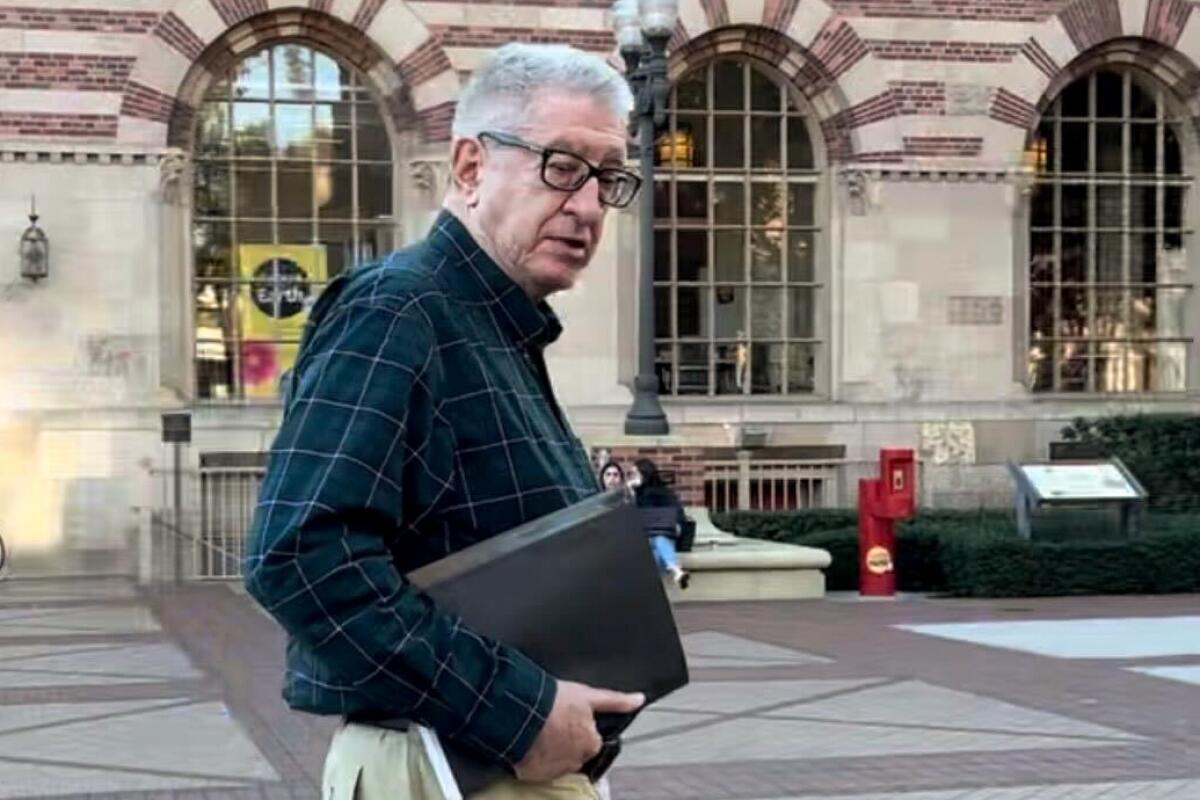
John Strauss, a USC economics professor, was caught on camera on November 9, 2023, confronting students who were holding a demonstration for Palestinians killed in Gaza.
(Distribute)
There was no doubt that Strauss said those words, but he denied that this posed a threat to the students, since Hamas is considered a terrorist organization.
In summarizing the investigation's findings, Harris said USC determined it did not have sufficient evidence that he was deliberately targeting any students and that his words, spoken in less than a minute, did not create a hostile environment.
“This was an exchange of opinions in a public area of campus about a matter of public concern that did not rise to anywhere near the level of conduct that constitutes harassment, which is severe, pervasive and persistent,” Harris said, referring to the formal criteria for evaluate harassment.
Although Strauss will not face any sanctions from the university, his attorney said the length of the investigation has been its own form of punishment.
“Living under a cloud for seven months is nothing, and it has a generally chilling effect on teachers' willingness to speak out on matters of public concern,” Harris said.
Strauss was allowed to return to campus in December and continued teaching in the spring semester. This fall, he also has a full course load.
“I don't regret anything I did or said at all,” Strauss said. “I think it was perfectly reasonable.”

